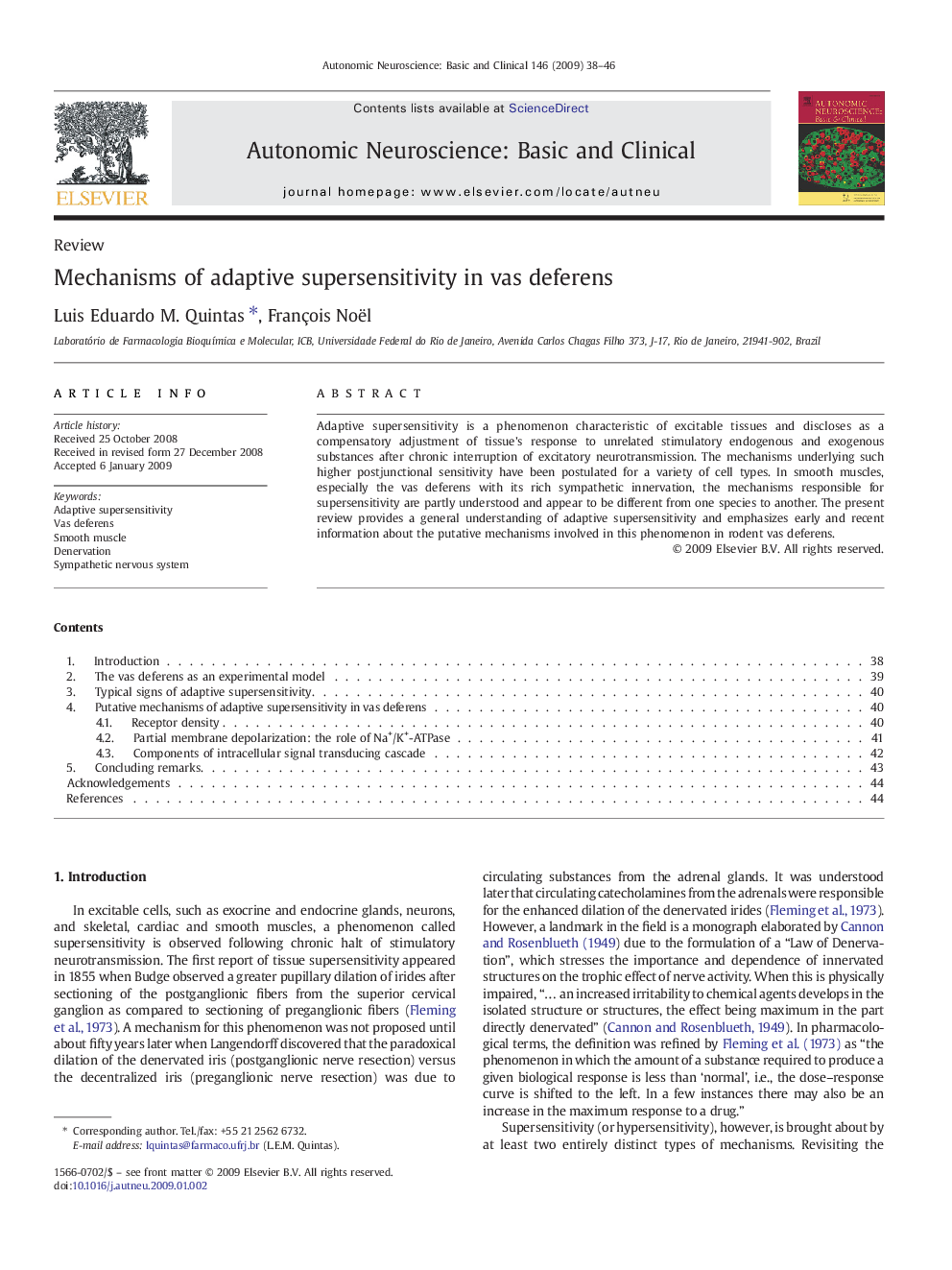| Article ID | Journal | Published Year | Pages | File Type |
|---|---|---|---|---|
| 3035455 | Autonomic Neuroscience | 2009 | 9 Pages |
Adaptive supersensitivity is a phenomenon characteristic of excitable tissues and discloses as a compensatory adjustment of tissue's response to unrelated stimulatory endogenous and exogenous substances after chronic interruption of excitatory neurotransmission. The mechanisms underlying such higher postjunctional sensitivity have been postulated for a variety of cell types. In smooth muscles, especially the vas deferens with its rich sympathetic innervation, the mechanisms responsible for supersensitivity are partly understood and appear to be different from one species to another. The present review provides a general understanding of adaptive supersensitivity and emphasizes early and recent information about the putative mechanisms involved in this phenomenon in rodent vas deferens.
